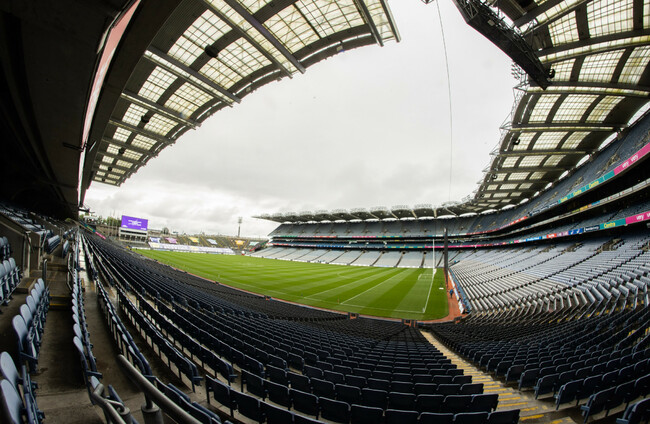CO-HOSTING Euro 2028 could secure a €361 million boost for the Irish economy, according to Government Chief Whip Jack Chambers.
It was announced earlier today that the Cabinet had approved Ireland’s bid to co-host the tournament alongside England, Scotland, Wales and Northern Ireland.
The Football Association of Ireland, in conjunction with the other associations, will now write to Uefa formalising the bid, with the final submission set to take place on 12 April.
The announcement on whether the bid is successful will be in September 2023, with Turkey the only other country vying to host the tournament as it stands.
“We’ve had a very extensive cost-benefit analysis and objective scrutiny of this between now and then,” Chambers told RTÉ’s Drivetime.
“The cost-benefit analysis sets that out and the projected cost including all contingencies and inflation out to 2028 would be up to €135 million.
“The projected economic benefit is €361 million. So it’s a very strong return on investment.”
Chambers added that the state’s money would be spent on the “production of capital upgrades to the Aviva and also Croke Park, the local delivery systems around fan zones, the safety and security cost, and also, the legacy and promotion of the event.”
Ireland are hoping to host seven yet-to-be-confirmed games at the tournament, with an overall tally of 120,000 fans expected and the potential creation of 2,600 jobs
Dublin is the only county in the Republic set to be involved, as the Aviva Stadium and Croke Park are the only two stadia that meet the Uefa requirements for hosting a major tournament.
There will also be “minor upgrades for the Aviva and more extensive upgrades to put temporary seating in Croke Park and other infrastructure upgrades”.
The GAA and IRFU, meanwhile, are also involved in the consultation process and will be hoping to avoid any scheduling conflicts with events such as the All-Ireland final of that year.
It would not be the only high-profile event coming to Dublin in the forthcoming years, with the Aviva Stadium already confirmed to host the Europa League final in May 2024.

